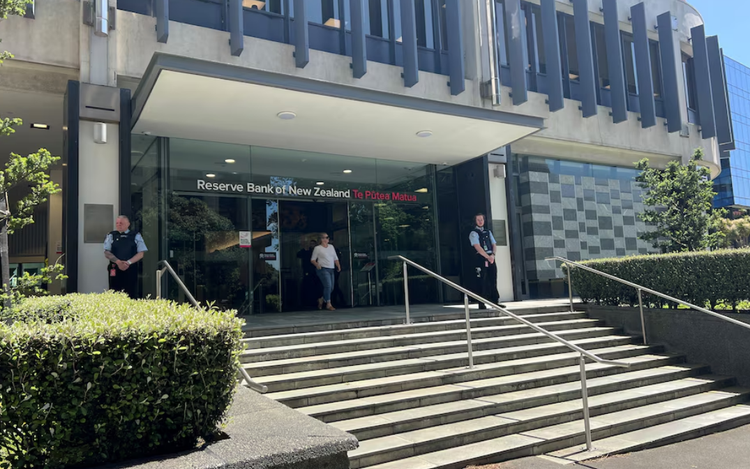
View of an entrance to the Reserve Bank of New Zealand in Wellington, New Zealand November 10, 2022. Photo: Reuters
Higher tariffs and trade barriers have created a negative demand shock for the world, Reserve Bank of New Zealand (RBNZ) Governor Christian Hawkesby told a parliamentary committee.
The RBNZ on Wednesday cut its policy rate by 25 basis points to a three-year low of 3.00% and flagged further reductions in coming months. The central bank has slashed rates by 250 basis points since August 2024 to spur economic growth.
"What we're seeing is the reaction to our interest rate cuts so far being a bit slower than we anticipated," Hawkesby said.
He added that this was in part because of the announcements in April on what U.S. President Donald Trump called "Liberation Day" and all the policy uncertainty that has surrounded this.
"The surprise for us since May has been what a prolonged impact that's had on business and consumer confidence in New Zealand, despite the fact that we are kind of outside of those worst case scenarios," he added.
The U.S. has placed a 15% tariff on goods being imported from New Zealand, which was worse than the 10% initially signalled but not as bad as many other trading partners.
Hawkesby said while this would impact a number of New Zealand industries, the greater impact would be how a softer global economy reduced demand for goods and services.
"That's what we are focused on in terms of the way that we set interest rates," he said.
The central bank is expecting New Zealand's economy to start to improve.
"There is a light at the end of the tunnel," Hawkesby said, adding that the RBNZ thinks the second quarter is the low in the economic cycle. "We're seeing growth pick up through that second half of this year."


Max: 1500 characters
There are no comments yet. Be the first to comment.